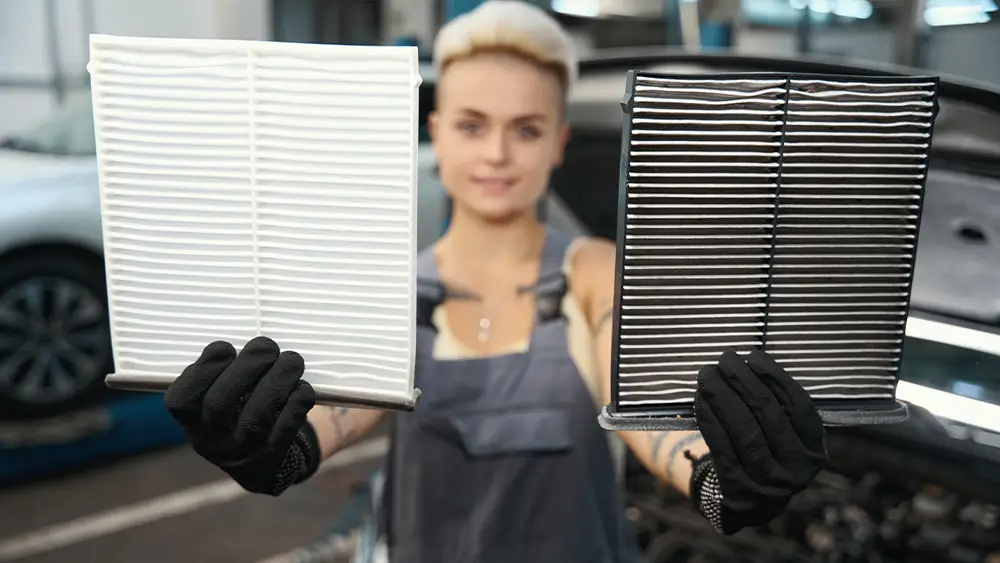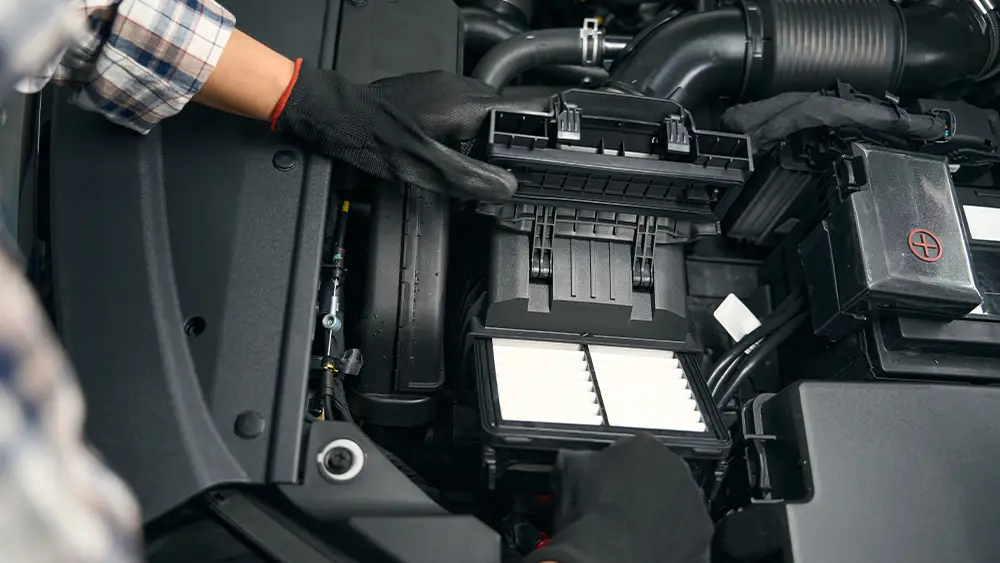Cabin air filters play a pivotal role in the automotive sector by ensuring the quality of air within a vehicle’s interior. These filters are designed to capture and eliminate airborne particles such as dust, pollen, pollutants, and odors, contributing to a healthier and more comfortable driving experience. Cabin air filters not only enhance air quality but also play a crucial role in protecting passengers from respiratory irritants and allergens. Regular maintenance and replacement of cabin air filters are essential to uphold optimal filtration efficiency and preserve the well-being of both the vehicle’s occupants and the HVAC (Heating, Ventilation, and Air Conditioning) system.
At ASAŞ, we take pride in manufacturing high-quality cabin air filters that cater to diverse automotive needs. Our lineup includes two main types: active carbon filters and pollen filters. Active carbon filters are designed to adsorb and neutralize odors, providing an additional layer of protection against unpleasant smells. On the other hand, pollen filters excel in trapping airborne allergens like pollen and dust, offering a clean and allergen-free environment within the vehicle. With a commitment to precision engineering and stringent quality standards, ASAŞ cabin air filters ensure not only the well-being of passengers but also contribute to a pleasant and refreshing in-car environment
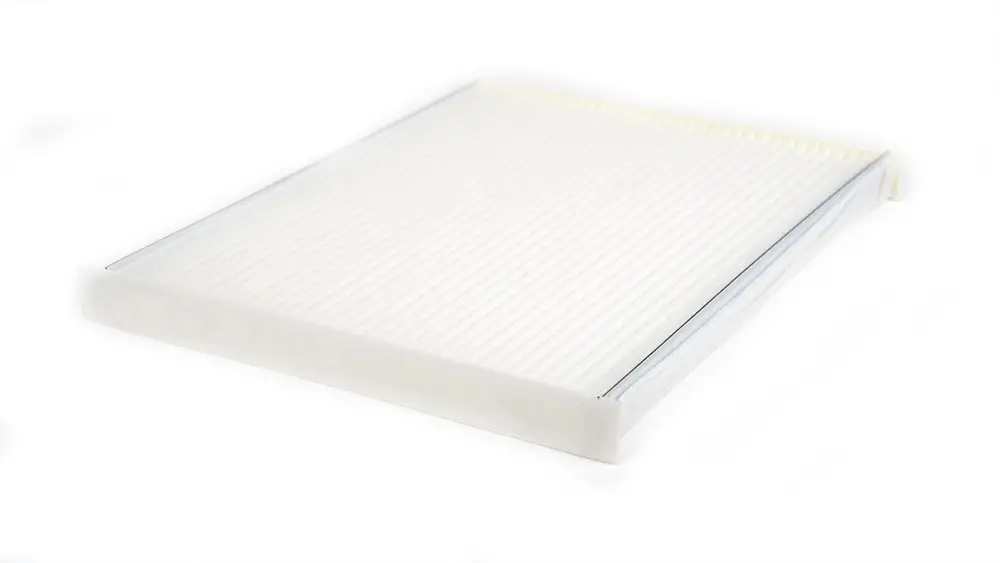
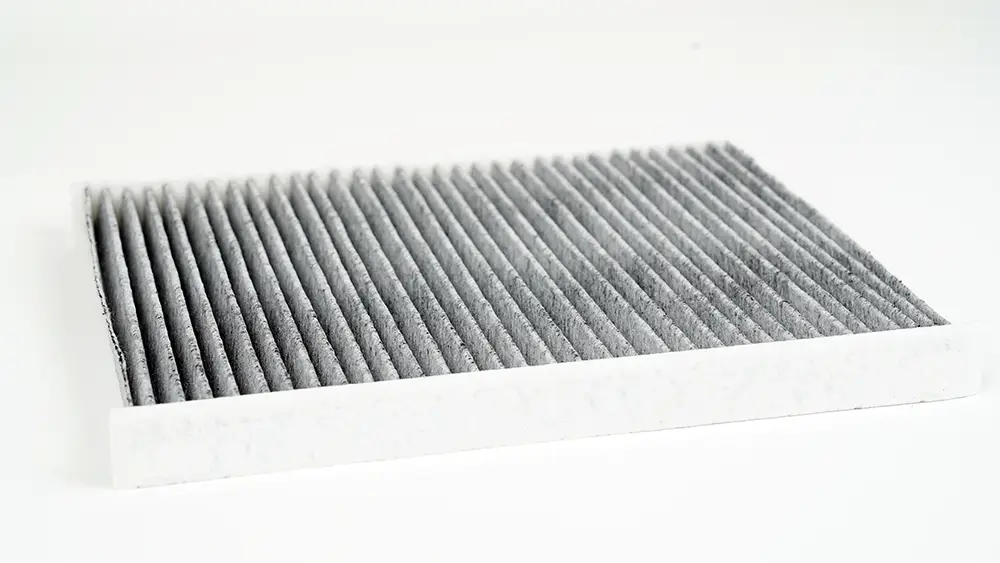
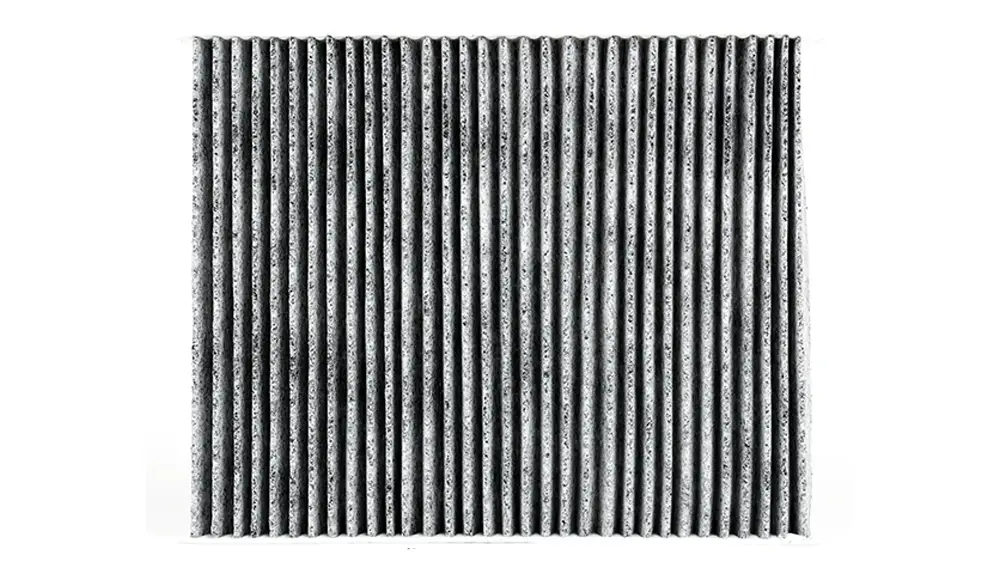
Active Carbon Filters
Active carbon cabin air filters, commonly known as activated carbon cabin air filters, are specialized air filters used in the automotive sector to improve the air quality inside a vehicle’s cabin. These filters are designed to go beyond the standard filtration of dust and pollen and are effective at removing harmful gases and odors. Here’s some brief information about active carbon cabin air filters used in the automotive sector:
Filtration Technology: Active carbon cabin air filters are equipped with a layer of activated carbon or charcoal in addition to the regular filter media. Activated carbon is highly porous, which gives it a large surface area. This characteristic allows it to adsorb and capture gaseous pollutants and odors effectively.
Contaminant Removal: These filters excel at removing a wide range of contaminants, including dust, pollen, allergens, smoke, exhaust fumes, volatile organic compounds (VOCs), and unpleasant odors. The activated carbon within the filter traps and adsorbs gases and odors, preventing them from entering the vehicle cabin.
Health Benefits: Active carbon cabin air filters contribute to better air quality inside the vehicle, making the driving experience more comfortable and healthier for passengers. They help reduce exposure to harmful airborne particles and irritants.
Odor Elimination: One of the primary advantages of active carbon cabin air filters is their ability to eliminate unwanted odors originating from sources such as exhaust fumes, pet odors, food smells, and environmental pollutants. This results in a fresher and more pleasant interior environment.
Ease of Replacement: Most active carbon cabin air filters are designed to be easily replaced, often as part of routine vehicle maintenance. Replacing these filters usually requires minimal tools and can be done by vehicle owners or automotive service professionals.
Compatibility: These filters are available for a wide range of vehicle makes and models. It is crucial to select a filter that matches the specific cabin air filter housing in your vehicle.
Maintenance Schedule: Manufacturers typically recommend replacing active carbon cabin air filters at regular intervals. The replacement frequency may vary depending on driving conditions and environmental factors but is often done during scheduled vehicle service.
Aftermarket Options: Vehicle owners may have the option to choose aftermarket active carbon cabin air filters. These filters may offer different levels of filtration and odor-eliminating capabilities compared to standard OEM (Original Equipment Manufacturer) filters.
In summary, active carbon cabin air filters in the automotive sector are specialized filters designed to enhance the air quality within a vehicle’s cabin. They effectively remove particles, gases, and odors, resulting in a more enjoyable and healthier driving experience for passengers. Regular replacement and proper filter selection are essential to ensure their effectiveness in maintaining clean and odor-free cabin air.
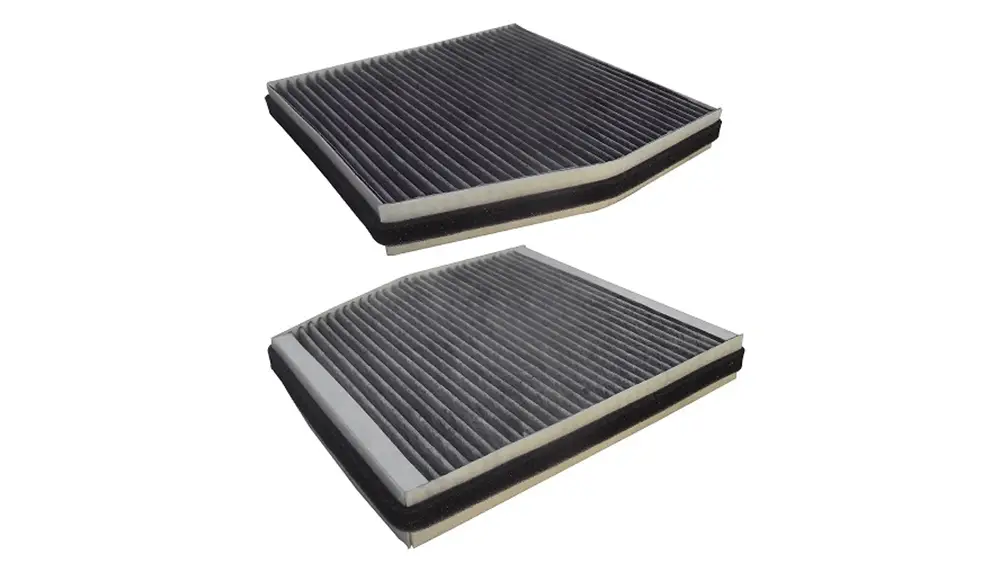
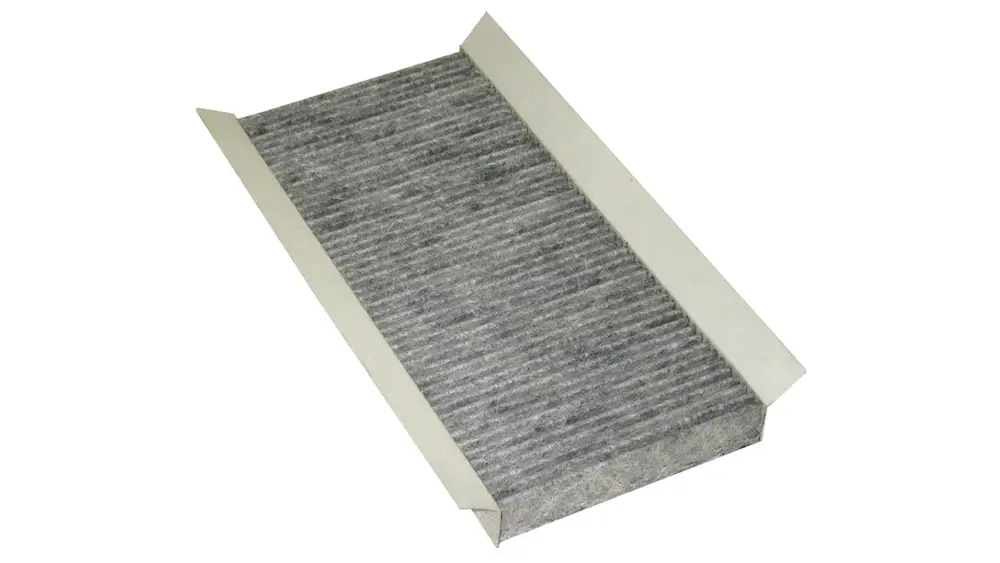
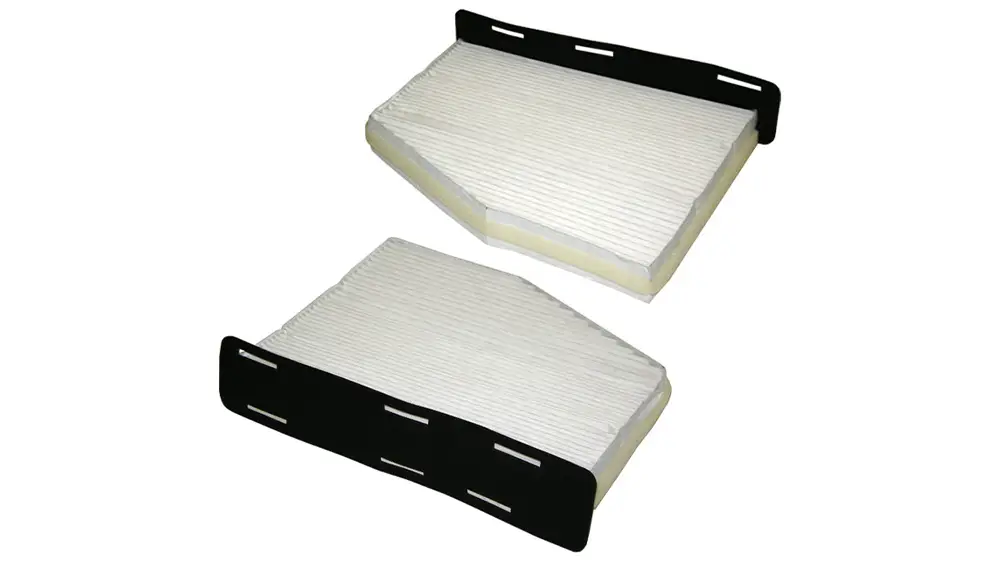
Pollen Filters
Pollen cabin air filters, are a vital component in modern automotive HVAC (Heating, Ventilation, and Air Conditioning) systems. These filters play a crucial role in improving the air quality inside a vehicle’s passenger cabin. Here is some brief information about pollen cabin air filters used in the automotive sector:
Purpose: The primary purpose of pollen cabin air filters is to trap and filter out airborne contaminants and particles from the outside air before it enters the vehicle’s interior. These contaminants include pollen, dust, dirt, allergens, exhaust fumes, and other pollutants.
Improved Air Quality: Cabin air filters contribute to better indoor air quality by ensuring that the air passengers breathe is clean and free from allergens and harmful particles. This is particularly important for individuals with allergies or respiratory sensitivities.
Health Benefits: By removing pollen and other allergens, cabin air filters can help reduce allergy symptoms for occupants, making for a more comfortable and healthier driving experience.
Extended HVAC System Life: Cabin air filters also help protect the HVAC system components, such as the blower motor and evaporator, from damage caused by debris. This can extend the life of these components and reduce maintenance costs.
Easy Replacement: Cabin air filters are relatively easy to replace, and most manufacturers recommend changing them at regular intervals, typically every 15,000 to 30,000 miles (24,000 to 48,000 kilometers) or once a year, depending on driving conditions and filter type.
Compatibility: Cabin air filters are designed to fit specific makes and models of vehicles, so it’s essential to choose the right filter for your vehicle to ensure proper fit and function.
Maintenance: Regular maintenance of cabin air filters contributes to the overall efficiency of the HVAC system. Clogged or dirty filters can restrict airflow, leading to reduced heating and cooling performance.
DIY or Professional Replacement: Replacing cabin air filters is a relatively simple DIY task for many vehicle owners. However, some vehicles may require professional installation due to filter placement or complexity.
In summary, pollen cabin air filters are an integral part of the automotive HVAC system, ensuring clean and allergen-free air for vehicle occupants. Regular replacement and maintenance of these filters contribute to better air quality, improved health, and extended HVAC system life in automobiles.
